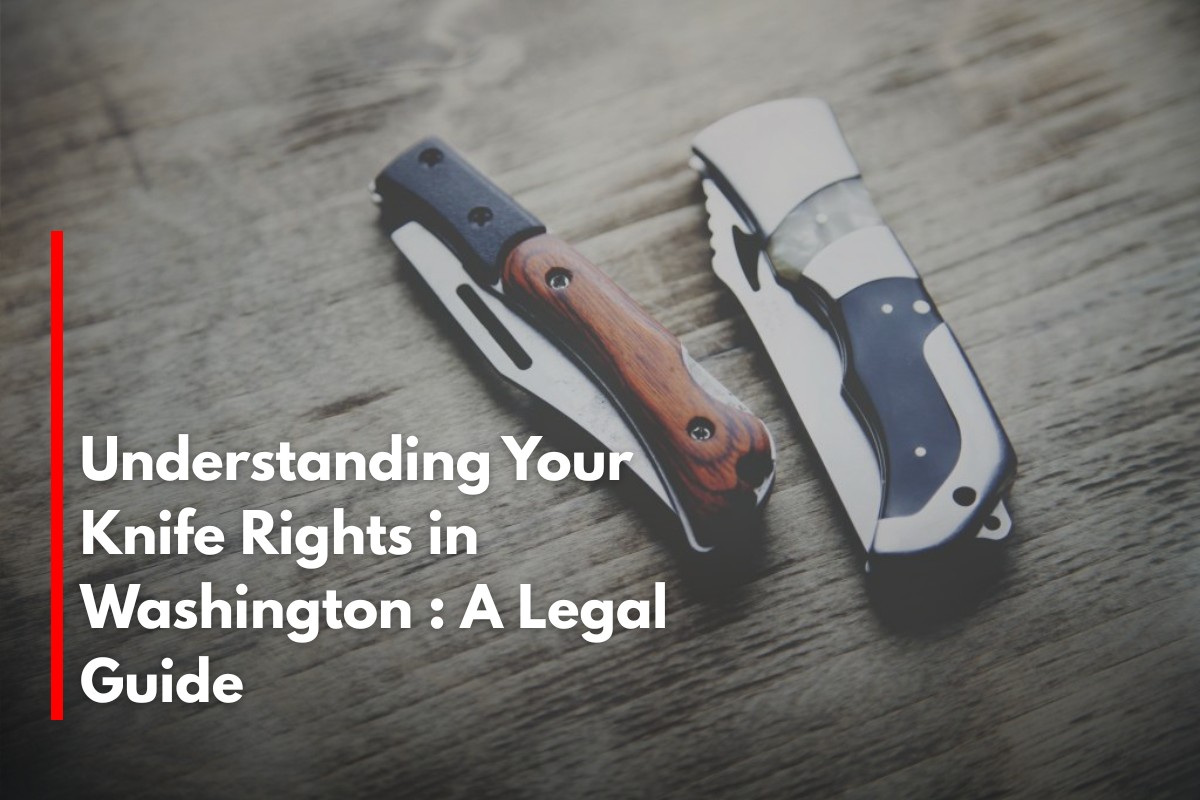Washington’s knife laws have undergone a major shift in 2025, making it crucial to know where you stand when carrying or owning a blade. Here’s a detailed breakdown of what’s legal, what isn’t, and tips for staying on the right side of the law.
Major Updates for 2025: Spring Blade (Automatic) Knives Legalized
Legalization of Spring Blade Knives: Effective July 1, 2025, spring blade (automatic or “switchblade”) knives are now legal to possess, buy, and carry in Washington, except where knives are generally banned (like schools or jails). This brings Washington in line with most other western states and removes a decades-long ban.
What’s a Spring Blade Knife? Any knife where the blade opens automatically by spring, gravity, or similar mechanism. However, knives designed to bias toward closure (like assisted openers) were already not considered “spring blades” under state law.
Carry Restrictions: Blade Length and Concealment
Open Carry: Most knives can be openly carried in Washington. However, local rules may still apply—especially in cities like Seattle, Tacoma, and Vancouver, where blade length caps are enforced and certain knives are always banned in public.
Concealed Carry: You may not conceal carry any fixed blade knife, or any folding knife with a blade longer than 3.5in, unless you are actively hunting, fishing, or in another lawful activity. This means keeping such knives hidden on your person is generally illegal without a valid shown need.
Cities May Impose Stricter Rules: For example, in Seattle the blade limit for carry is just 3.5in, and many downtown areas have even stricter ordinances. Always check local rules before carrying any knife.
Banned and Restricted Locations
Schools: All knives are banned from K-12 school grounds statewide regardless of type or blade length. This includes inside vehicles on school property.
Transit Stations/Public Transport: As of June 2024, it is illegal to possess any knife at transit stations (bus, train, and trolley stops)—a rule currently under challenge but in effect as of this writing.
Courthouses, Jails, Government Buildings: Knives are always banned—possession can result in criminal charges.
Large Public Gatherings and Some Venues: Events, concerts, and locations with security checkpoints often enforce “no knife” rules.
Legal Types of Knives
Allowed: Bowie knives, dirks, daggers, stilettos, smartphones with built-in utility tools, and Swiss Army/multitools are all legal to own and (in most places) carry, if you obey blade length and concealed carry laws.
Illegal: Certain knives (gravity knives, butterfly knives) were previously illegal, but much of this has been superseded by the 2025 reforms. Always check local codes for any carry restrictions.
Knife Laws and Minors
No Statewide Minimum Age: There is no set minimum age for buying knives, but minors face stricter rules for carrying in public or on school property. Many stores refuse sales to minors as a matter of policy.
Parents and guardians are urged to educate minors on knife safety and legal responsibilities.
When Carry Becomes a Crime
Practical Tips
Always check local laws before carrying a knife.
Conceal carry of blades over 3.5in (except for lawful purposes) is unlawful.
Never bring knives to schools, transit stations, government buildings, or large public gatherings—even if your knife is technically legal elsewhere.
Open carry is generally safer and legal unless local ordinances say otherwise.
Key Takeaways
Spring blade (automatic/switchblade) knives are legal from July 1, 2025, except in restricted areas.
3.5-inch blade limit applies to concealed knives; stricter rules may apply in major cities.
No knives in schools, public transit stations, or government buildings.
Check your city’s codes for extra restrictions—Seattle, Tacoma, and Vancouver have some of the toughest local rules.
Stay informed, respectful, and aware of where you carry your knife to avoid costly legal trouble in Washington State.
Sources
[1] https://lawfilesext.leg.wa.gov/biennium/2025-26/Pdf/Bill%20Reports/Senate/5534%20SBR%20LAW%20OC%2025.pdf
[2] https://www.billtrack50.com/billdetail/1806105
[3] https://lawfilesext.leg.wa.gov/biennium/2025-26/Pdf/Bills/Senate%20Bills/5534-S.pdf
[4] https://www.reddit.com/r/Washington/comments/1dg31in/washington_knife_laws/
[5] https://tkellknives.com/knife-laws-in-washington-state-legal-carry-and-restrictions/











